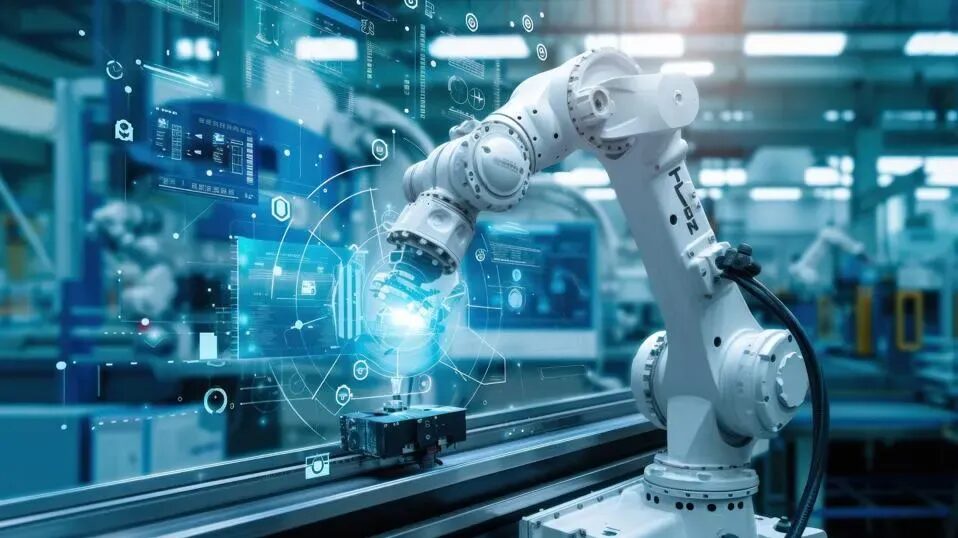Future-Proof Your Logistics Career: The Impact of Generative AI On Transport Jobs
8 January 2025
Transport and logistics form the backbone of global industry. As it often involves managing complex operational networks, solving optimization challenges, and conducting extensive documentation and compliance work, I believe it’s likely to be a field that will be heavily impacted by generative AI and automation.
From warehouse management to route planning and supply chain forecasting, generative AI will reshape the way that logistics professionals get work done. Tasks that traditionally involve hours of repetitive and manual work will be automated, allowing us humans to focus on more valuable activities such as strategy, complex planning and relationship-building.
Sure, any transformation on this scale inevitably brings uncertainty and perhaps some degree of fear.
However, by planning for change and embracing new opportunities, those who are willing to adapt can make sure they’re set up for future success. So, here’s my overview of what I believe will be the most significant changes and tips to make sure you aren’t left behind.

How Will Transport and Logistics Professionals Leverage Generative AI?
Transport and logistics operations cover a huge spectrum of professional responsibilities, and almost all of them will be able to leverage generative AI in some form.
For example, logistics and supply chain analysts and planners can use generative AI to scan vast amounts of data generated by logging systems in order to identify patterns and make operational decisions.
AI is also regularly used by dispatchers to create optimized route plans and delivery schedules. This cuts down travel times as well as reduces fuel usage, saving further costs.
Fleet managers will benefit from automated scheduling of vehicle maintenance, allowing more efficient use of resources and reducing downtime.
In warehouse roles, generative AI will be used for inventory management and demand forecasting. By reducing the amount of time that stock has to be held for or the likelihood of spoilage due to overstocking, costs are reduced, and profits go up.
Currently, administrative tasks involving documentation, compliance checking and generating reports take up countless hours of human time. Much of this will be automated by generative AI in the near future.
Answering questions from customers or workers in other business functions will be streamlined thanks to genAI chatbots handling routine inquiries, allowing more efficient colleague and customer service.
What Challenges Does Generative AI Create For Transport And Logistics Professionals?
Generative AI clearly creates many opportunities for logistics professionals to spearhead the delivery of growth and efficiency in their organizations. However, it also brings a number of potentially problematic challenges that can’t be ignored.
Firstly, there’s capital investment. While many genAI tools are free or available through low-cost subscriptions, rolling out enterprise-wide use cases can involve significant spending on software, compute power, specialist skills and proprietary data. Of course, this outlay has to be balanced against the benefits that will be achieved.
Then, there are privacy and data protection concerns. It may not always be safe to enter data – particularly sensitive data like customer information – into genAI systems. This is particularly true when using public systems where there is no guarantee that information is used securely. It’s vitally important for any professional wanting to start using genAI to understand the privacy implications of the tools and datasets they’re using.
Then, there are challenges related to workplace and organizational culture. People’s understanding and attitudes towards AI can vary greatly. While some people immediately think of opportunities, others right away see threats and even the possibility that they will be made redundant.
Developing a sensitivity to this variance is critical if professionals want to start using AI in a way that creates value and benefits across their organizations.
Transport And Logistics In the GenAI Future
I believe there’s a bright future for professionals working (or looking to work) in the transport and logistics sector – as long as they’re ready to adapt to the changes on the horizon.
It’s said that AI won’t replace humans, but humans who use AI will replace those that don’t. Nowhere is this more true than in the roles we’re looking at here.
For anyone wanting to future-proof their own career prospects, the impetus is on them to develop the required skills and competencies. This includes AI literacy, as well as a deeper understanding of how technology will impact their specific role or function within their organization.
Undoubtedly, some roles may disappear or become far less numerous. I suspect this will mainly be an entry-level technical role focused on analytics or optimization problems. However, according to the World Economic Forum, just as many new roles are likely to emerge.
These could center around managing autonomous fleets, fine-tuning predictive AI systems for industry-specific use cases, or overseeing the legal and ethical implementation of AI.
One piece of advice I would give to anyone, however, is to focus on nurturing and developing non-technical “soft” skills.
By cultivating capabilities like teamwork, leadership, interpersonal communications, conflict resolution and strategic planning, anyone can ensure they have a skillset that’s unlikely to be made redundant by machines anytime soon.
This is true in any industry, but it is likely to become particularly useful in transport and logistics roles, where many aspects of day-to-day work are extremely exposed to genAI and automation.
Related Articles
7 Essential Trends IT Departments Must Tackle In 2025
By now, “smart” versions exist of just about every home appliance, gadget and gizmos we can think of. However, manufacturers continue[...]
Essential HR And Recruitment Trends For 2025
By now, “smart” versions exist of just about every home appliance, gadget and gizmos we can think of. However, manufacturers continue[...]
Bitcoin’s Trillion-Dollar Comeback: The Market Shift You Can’t Ignore
By now, “smart” versions exist of just about every home appliance, gadget and gizmos we can think of. However, manufacturers continue[...]
8 Game-Changing Manufacturing Trends That Will Define 2025
By now, “smart” versions exist of just about every home appliance, gadget and gizmos we can think of. However, manufacturers continue[...]
Why 2025 Is The Year Every Business Leader Must Get Quantum Ready – And How To Do It
By now, “smart” versions exist of just about every home appliance, gadget and gizmos we can think of. However, manufacturers continue[...]
7 Mistakes Business Leaders Are Guaranteed To Make In 2025
By now, “smart” versions exist of just about every home appliance, gadget and gizmos we can think of. However, manufacturers continue[...]
Sign up to Stay in Touch!
Bernard Marr is a world-renowned futurist, influencer and thought leader in the fields of business and technology, with a passion for using technology for the good of humanity.
He is a best-selling author of over 20 books, writes a regular column for Forbes and advises and coaches many of the world’s best-known organisations.
He has a combined following of 4 million people across his social media channels and newsletters and was ranked by LinkedIn as one of the top 5 business influencers in the world.
Bernard’s latest book is ‘Generative AI in Practice’.










Social Media